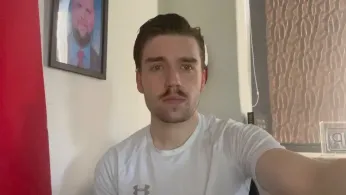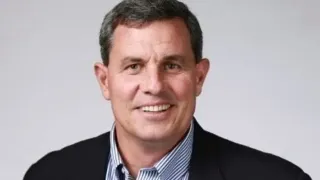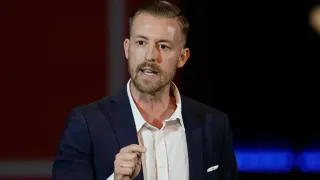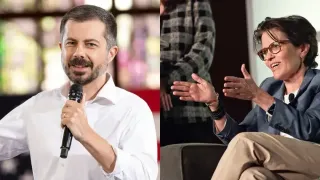
Sep 25
Alt-Right Christian Influencer Faces Backlash After Leaked Gay DMs Expose Double Life
READ TIME: 3 MIN.
On September 24, 2025, the LGBTQ+ and broader online community were rocked by revelations that a well-known alt-right Christian influencer—referred to here as Anthony—had a significant history of gay direct messages and expressive online behavior that ran counter to his public persona. The influencer, previously celebrated in conservative circles for his outspoken traditional views, found himself at the center of controversy as screenshots and video clips surfaced showing him engaging in flirtatious conversations with men and posting videos dancing to music icons like Lady Gaga.
Anthony rose to prominence in alt-right and Christian social media spaces over the past several years, building a substantial following by promoting conservative family values, religious dogma, and often deriding LGBTQ+ rights. His online persona was one of unwavering devotion to traditional Christian teachings, frequently condemning what he described as "immorality" and "deviant lifestyles".
However, beneath the surface, Anthony's past included posts that openly identified him as gay, sharing clips of himself dancing to LGBTQ+ anthems and sending flirtatious direct messages to other men. This duality came to light after a series of leaks exposed conversations and videos dating back several years. The revelations showed a stark contrast between Anthony's private behavior and his public condemnation of LGBTQ+ lives.
The leaked direct messages included explicit flirtation and expressions of same-sex attraction, which rapidly spread across platforms such as Threads, Twitter, and Instagram. Within hours, LGBTQ+ news outlets and social media accounts were dissecting the messages, drawing attention to the hypocrisy and the emotional toll of living a double life.
Screenshots showed Anthony initiating conversations with other men, complimenting their appearances, and making suggestive comments. In addition, older videos surfaced in which he danced to Lady Gaga, a pop icon widely regarded as an ally to LGBTQ+ people. The combination of these materials painted a picture of an individual struggling with his identity against the backdrop of a hostile ideological environment.
The response from LGBTQ+ communities was multifaceted. Many expressed outrage at the perceived hypocrisy, noting that Anthony's public anti-LGBTQ+ rhetoric may have contributed to real harm for others while he privately explored his own identity. Social media users, including prominent LGBTQ+ voices, called out the dangers of internalized homophobia and the toxic pressures exerted by conservative environments.
At the same time, some advocated for compassion, highlighting the complex realities faced by LGBTQ+ people raised in strictly religious or ideological families. The leaked messages became a catalyst for broader discussions about mental health, identity suppression, and the need for inclusive communities that allow individuals to live authentically.
The story quickly transcended the boundaries of LGBTQ+ media, drawing attention from mainstream news outlets and political commentators. Conservative followers of Anthony were divided; some doubled down on support, framing the leaks as an orchestrated smear campaign, while others distanced themselves, citing a betrayal of core values.
For LGBTQ+ activists, the situation underscored the persistent challenges of visibility and acceptance in conservative spheres. Many pointed to the incident as evidence of the destructive nature of anti-LGBTQ+ rhetoric and the urgent need to foster environments where people can be open about their sexuality and gender identity without fear of reprisal.
Anthony’s story is emblematic of larger societal issues facing LGBTQ+ individuals in hostile environments. Research shows that internalized homophobia and public condemnation can lead to severe mental health consequences, including anxiety, depression, and suicidal ideation. Advocacy organizations stress that stories like Anthony’s are not isolated incidents, but rather part of a pattern where individuals are forced to suppress fundamental aspects of themselves due to external pressures.
LGBTQ+ support groups and mental health professionals have used this moment to call for greater resources and outreach aimed at people experiencing identity conflict, particularly within faith-based or conservative communities. The conversation has pivoted toward creating safe spaces, increasing representation, and dismantling stigmas that perpetuate cycles of shame and secrecy.
While Anthony’s personal situation remains unresolved and the public reaction continues to unfold, the leaked messages have reignited discussions about authenticity, acceptance, and the dangers of hypocrisy in the public sphere. LGBTQ+ voices are urging allies and institutions to reflect on the harm caused by exclusionary rhetoric and to double down on efforts to support those struggling with their identities.
The incident serves as a powerful reminder of the importance of affirming all LGBTQ+ people, regardless of their background, and the need for ongoing dialogue and education to foster understanding and acceptance in every corner of society.






